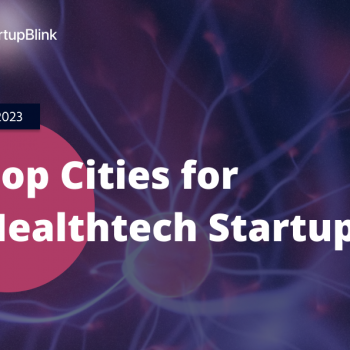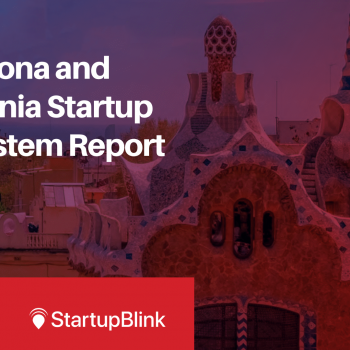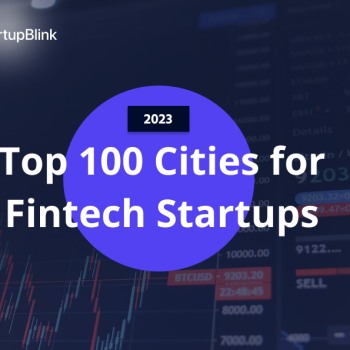StartupBlink has launched the Startup Ecosystem Ranking Report 2019 that now ranks 1,000 cities and 100 countries worldwide and is available for download here.

When people think of the Netherlands’ innovation ecosystem, they think of Amsterdam. As one of Europe’s most known and visited cities, the Dutch capital has managed to connect its image as a hub for tourism and culture with it’s increasingly innovative and thriving startup ecosystem. In the meantime, Rotterdam, the country’s second largest city, has often remained in Amsterdam’s shadow.
Over the past several years, however, Rotterdam’s momentum has reached a critical mass. The city is now home to 500+ tech startups, nearly two-thirds as many as Amsterdam. With access to talent from both the technology sector (TU Delft) and the business sector (Erasmus University), all ingredients for founding and scaling successful startups are locally brewed. Even the ever-changing architecture and skyline have contributed to increased attention from international students and tourists alike.
As home to the largest port in Europe, Rotterdam has been a culminating point for maritime and trade industries for decades. More and more, however, companies focused on software, digital platforms, algorithms, and similar technologies are also making a name for themselves. Since the electronics giant Coolblue, we have seen companies like Mendix (software), Helloprint (print), Shypple (ocean freight), Quantib (MedTech) and other software- or platform-based scaleups add to the diversity of Rotterdam’s tech ecosystem.
A similar phenomenon has taken place in the hubs that connect and support this ecosystem. The Cambridge Innovation Centre set up its third location in Rotterdam, 42workspace opened the first techfocused workspace, and MDR, ITCampus, Erasmus Centre of Entrepreneurship, PortXL, and YES! Delft have colored in the education and accelerator landscape.
Perhaps Rotterdam should share some of the credit for its recent momentum. According to Shypple CEO Jarell Habets, the city has benefited from what he calls “spill-over effects” – a consequence of an overly saturated Amsterdam in close proximity. The Dutch capital has experienced such a rise in demand over the past decade – from housing to office space – that Rotterdam has become a compelling alternative for students, founders and employees alike.
From an international or geographical perspective, it doesn’t even make sense to consider Amsterdam and Rotterdam as separate ecosystems. Less than 80km apart from one another, there are many commuters who live in one city and work in another. Personal networks, events, clientele, and other resources already overlap to a large degree. In practice, however, people still perceive the two as very separate cities, each with its own strengths and weaknesses.
While ‘rivalry’ or ‘competitor’ can carry negative connotations for many, Rotterdam seems to benefit from having, in close proximity, a partner city among Europe’s leading tech/startup hubs. As leading indicators go, it’s only a matter of time before Rotterdam emerges entirely from Amsterdam’s shadows.
Written by Fred Bärtels, Program Manager at WeTechRotterdam





